9 Tips to Conserve Your Air While Scuba Diving
The age-old question for every scuba diver: how do I use less air and stay down longer? Conserving your air while scuba diving is no easy feat. But we’re here to help anyway. Increase your dive time and conserve your oxygen with these 9 tips during your next dive!
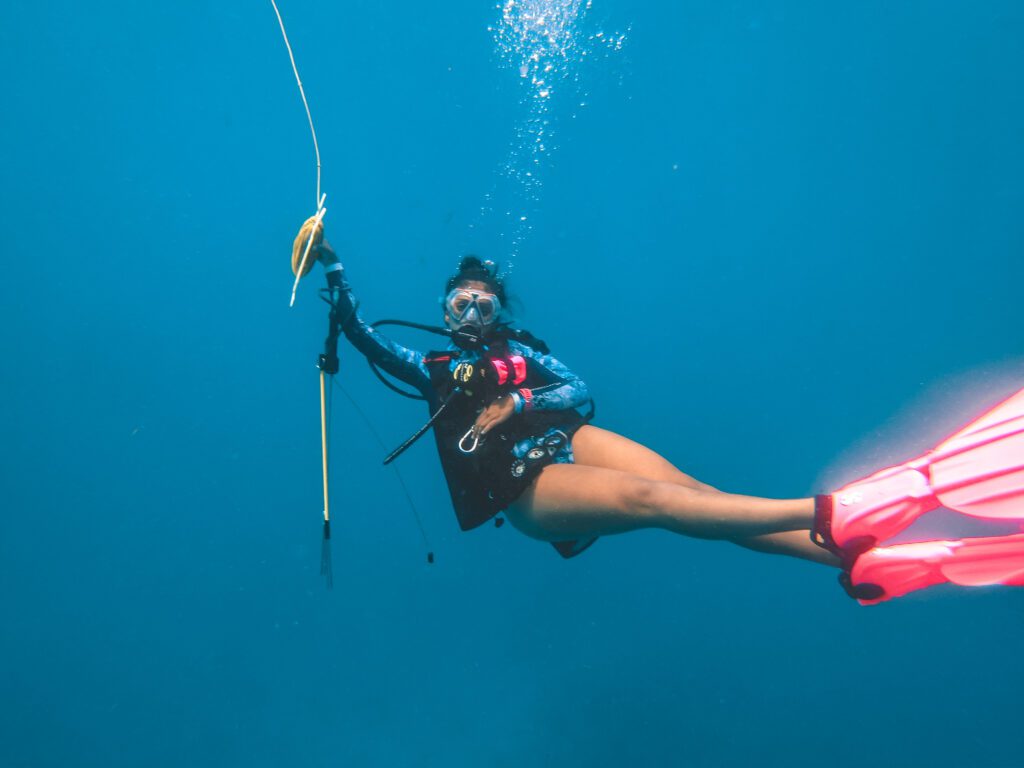
We’ve all been there: a dive cut short because you or your dive buddy were low on air. It’s got to be someone, after all. But for some reason, it ALWAYS seems to be you! I certainly know the feeling. Just ask my dive buddy.
To keep up with my dive buddy and stay down longer, I had to do something; learning how to conserve my air was my top priority. This list represents the collection of tips I learned, which ultimately, helped me increase my dive time immensely!
How to conserve your air while scuba diving
Knowing how to conserve your air while scuba diving is no secret formula. It’s actually a combination of simple tips, when applied correctly, that can make a massive difference.
The good news: these tips are for everyone! Whether you’re a student, a new open water diver, experienced veteran, or even a professional! So dive on in, folks! It’s time to increase your bottom time to fully enjoy the depths longer!

Factors likely outside of your control
You can’t control everything and other reasons exist why you may be the one in the group to run low on air first:
- A light tank fill. Dive shops and charters typically fill tanks all day, every day. And some times, in a rush. Some tanks may be filled slightly less than others. If your tank starts at 2800 psi (193 Bar) and your buddy’s tank is at 3100 psi (213 bar), who has a better chance at staying down longer?
- You’re a larger individual with an increased lung capacity. Bigger lungs = more oxygen used.
- Male vs female divers. On average, males tend to have larger lung capacities than females. Thus, females tend to use less air while scuba diving than males.
- Depth of dive. You likely learned in your scuba diving classes that atmospheric pressure differences cause you to use air much quicker at greater depths. That means, if the planned dive for the day is a ship wreck at 100′, you’ll blow through your air much quicker than if you were diving a coral reef at 25′.
But those are beside the point. Despite these discrepancies, you can still increase your dive time!
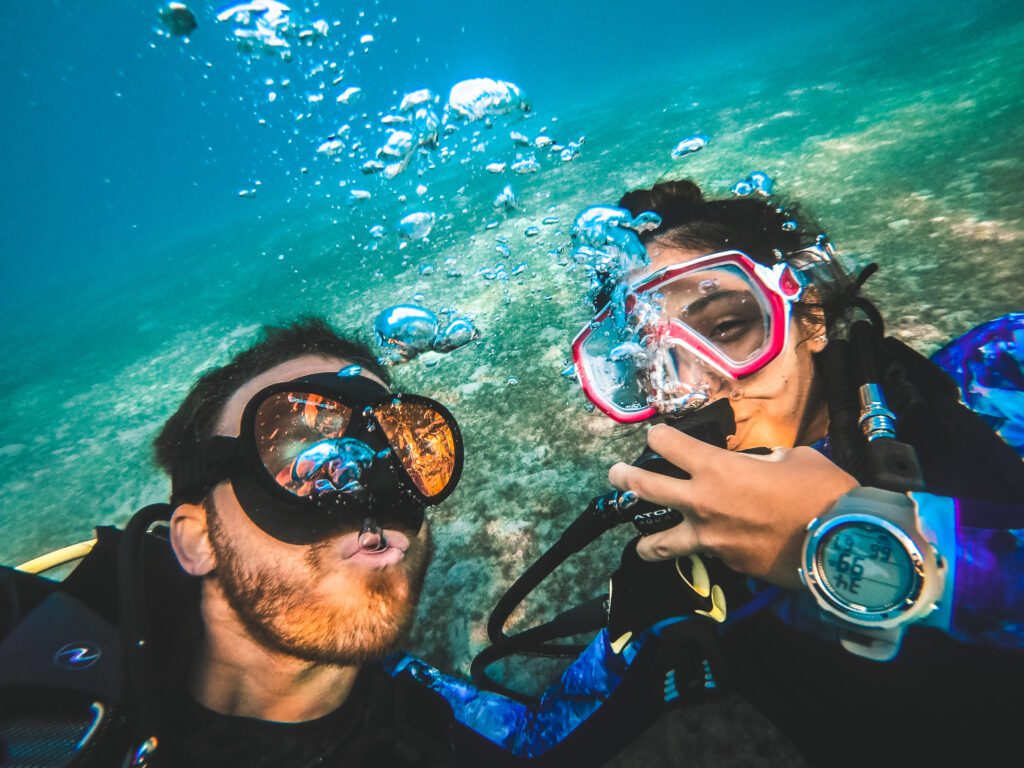
1. Become more streamlined
I know you’ve heard the term before. Streamlining is essential in scuba diving. What exactly is streamlining, though?
The Oxford English Dictionary defines the verb as:
Design or provide with a form that presents very little resistance to a flow of air or water, increasing speed and ease of movement.
Oxford English Dictionary
Essentially, the less space you take up, the easier your movements will be underwater. Which, ultimately, conserves your air while scuba diving.
How to be more streamlined
- Ditch the nonessential gizmos and gadgets. They likely produce more drag and resistance as you move.
- Reduce dangling items such as hoses, gauges, and safety equipment.
- Tuck those same essential items close to your body to reduce drag.
- Investing in quality clips and rings to attach loose gear can significantly help your air consumption.
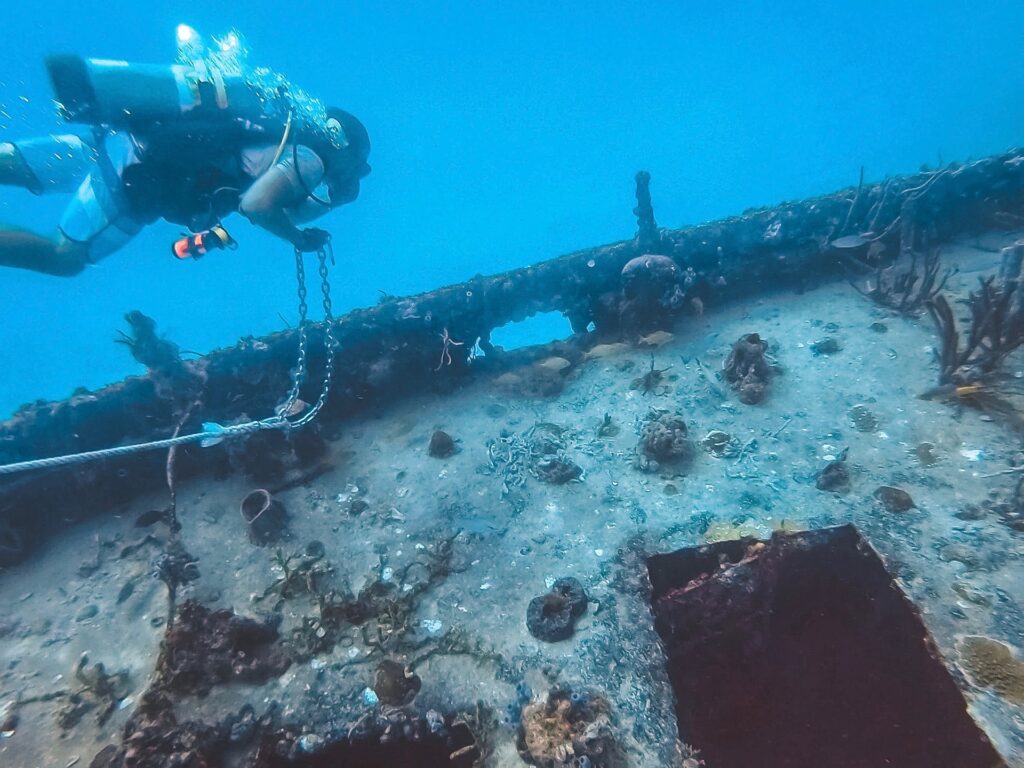
2. Breathing deep and slow
Take it from your yoga teacher, “Deep breath in. Deep breath out. Nice and relaxed”.
Honestly, the principle behind it relates to scuba diving too: deep and slow breaths maximize your body’s use of oxygen. As you breathe in, your blood collects an ample amount of oxygen in the lungs to be delivered to the muscles of your body. As you breathe out, your blood disposes of the toxic carbon dioxide it collected from your muscles.
The deep, slow, and rhythmic breaths allow your body to use oxygen more efficiently. Thus, significantly decreasing the amount of oxygen your body needs. All of which increases your dive time due to less air consumption!
Wise words of wisdom that go beyond yoga, don’t you think?
3. Stay calm
In contrast, short, fast, and shallow breathes will literally blow through your air. Oftentimes, new, uncomfortable, or nervous divers will hyperventilate, using more oxygen than needed.
Stay calm throughout the dive. Trust your instincts and what you know. You’ll conserve oxygen and increase bottom time. But yet, always remember: never dive in a situation you’re not comfortable with.
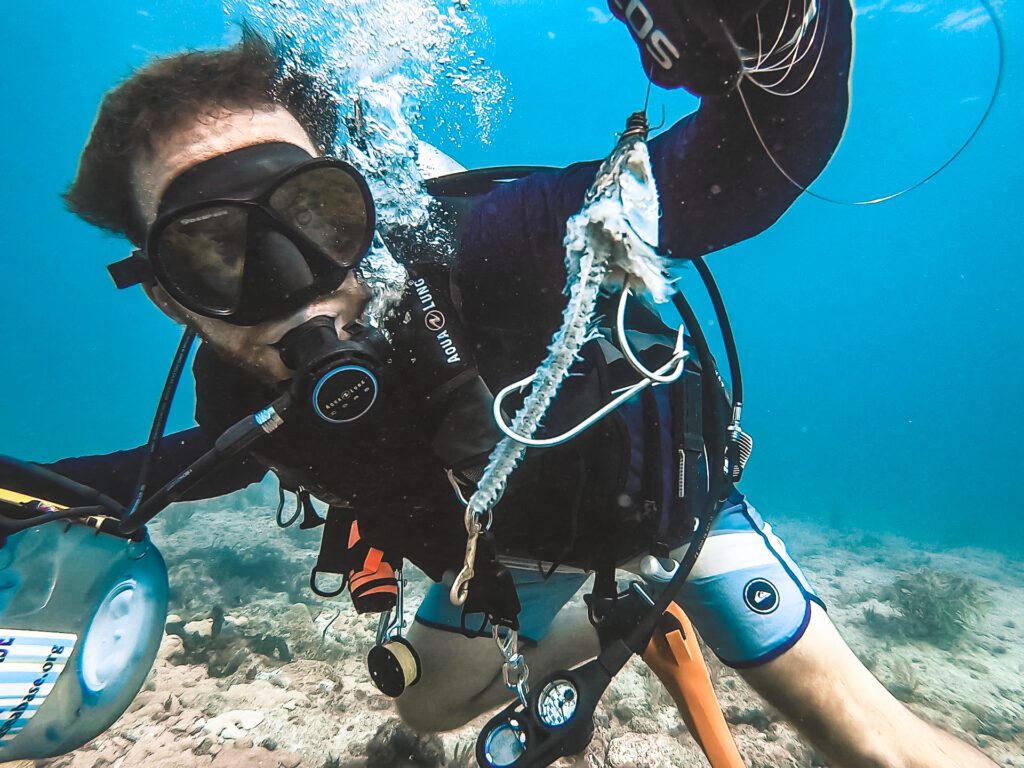
4. Use your snorkel at the surface before you descend
A simple solution few people remember to do. If you’re at the surface waiting, for whatever reason, just switch to your snorkel before you descend!
Take it from me. Just the other day, in fact, I had a dive to 90′ last less than 10 minutes because I blew through my air before I even descended. The ripping current forced me to pull myself from the stern of the boat to the descent line at the bow. I foolishly used my regulator the whole time. (yikes)
By the time I reached the bottom, a third of my air was depleted! Had I used a snorkel instead of my regulator at the surface, my dive time would have been significantly increased. Shucks.
Don’t be like me. Use your snorkel at the surface.
5. Swim slowly and rhythmically
What’s the rush anyway? As my mentor, Captain Bert, always said “go slow, see a lot. Go fast, see very little“. The same can be said about conserving your air.
Think of it like this: when do you breathe harder? Walking or jogging? Jogging, of course!
Don’t jog underwater. Walk. (metaphorically, of course) Walk by swimming slowly and rhythmically. Your increased dive time will thank you for it.
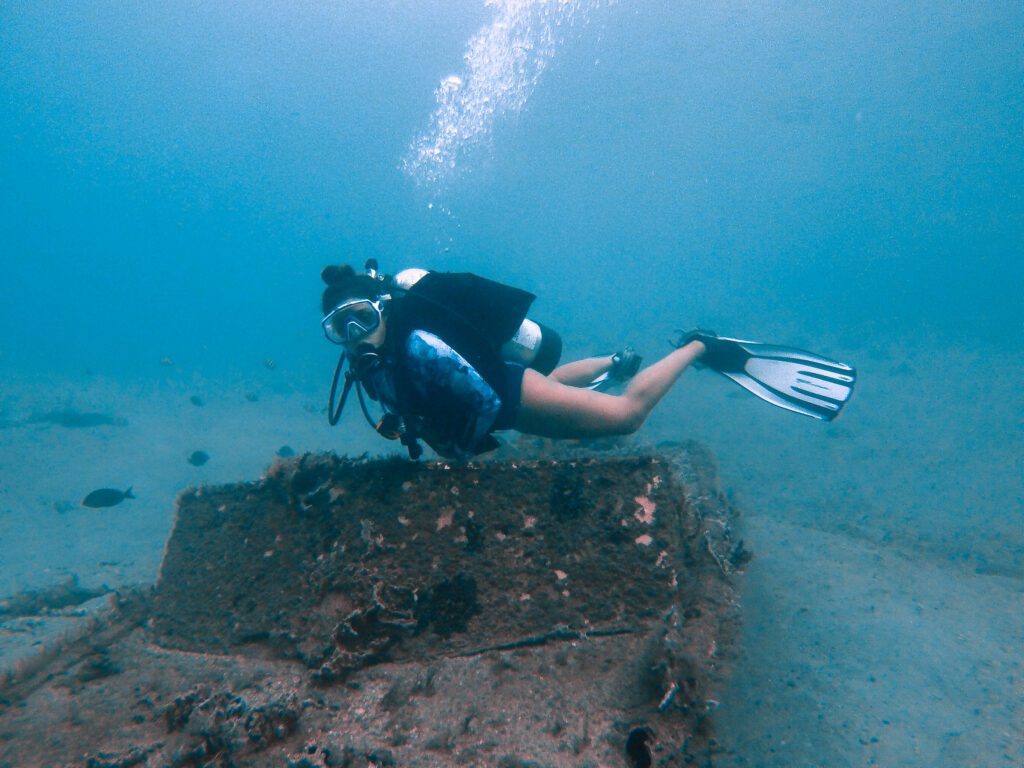
6. Maintain proper buoyancy control
Easier said than done, right? They don’t make entire courses on this topic for nothing. Although, that doesn’t mean we shouldn’t try!
Better your buoyancy control with these quick tips:
- Use the proper amount of weight (this is likely the worst offender). Being overweighted will sink you, thus requiring more inflation in your BCD and other air consumptive adjustments.
- Watch your trim. In other words, maintain a horizontal position in the water.
- Stay mindful of your wetsuit thickness (thicker wetsuits are more buoyant).
- Practice best scuba breathing techniques. (see above)
- Dive! Good buoyancy does come with experience as you get more comfortable underwater.
Proper buoyancy control will minimize the amount of oxygen you use as you’re not needlessly expending energy to maintain position.
7. Kick properly
Bicycle kicks. The dreaded bicycle kicks. You know what I’m talking about. And if you don’t: proper kicks while scuba diving don’t look like you’re riding an imaginary bicycle. If you’re a bicycle kicker, don’t worry you’ll improve! AND you’ll conserve more air when you improve, too!
Fins are designed to translate the energy from your upper legs and glutes into a forceful propulsion forward. This movement originates at the hip – not the knees (bicycle kicks) – and maximizes the fin’s design at your feet.
So next time you’re diving, make sure your kicks are efficient while originating from the hip. You’re surely to conserve more air.
8. Stay shallow when possible
Traveling underwater from one patch reef to another? How about one part of a shipwreck to a different section? Do you really need to skim just above the sand for all that distance? Or could you ascend 10 – 15 feet and then swim over?
Recall from your open water class: the greater the depth the more air you use. Meaning, slightly ascending from point A to point B can significantly reduce your air consumption!
You’ll be amazed. It really is one of the best strategies to conserve your air while scuba diving.
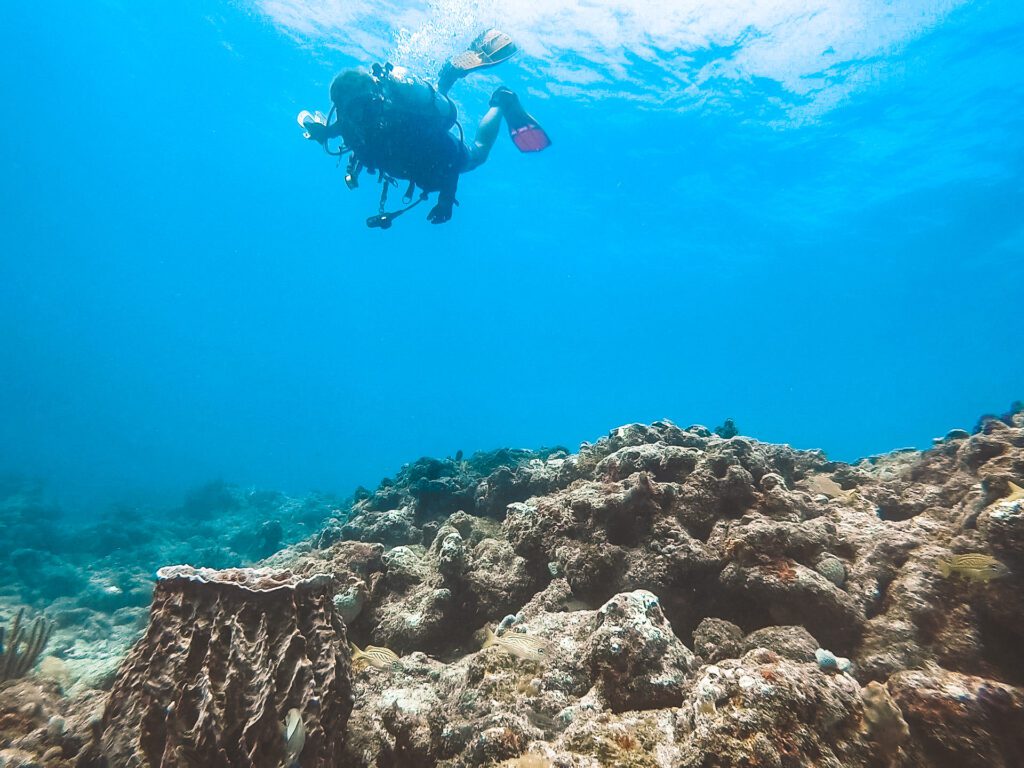
9. Maintain and improve your physical fitness
It’s no secret. Physical fitness is the best indicator of how well your body uses oxygen. The more in shape your muscles are, the less oxygen they use – particularly in terms of cardiovascular and muscular endurance.
A quick list of exercises to improve your physical fitness that work for scuba diving are:
- Swimming. (quite possibly the best as its a full body workout directly related to scuba)
- Running, jogging, walking. (even short walks for at least 30 minutes can improve your cardiovascular endurance)
- Cycling. (cycling around town or at the gym can do wonders for your lower body)
- Yoga. Yoga is principled upon best breathing techniques. These same techniques can easily be applied to scuba! Find a local yoga studio or try out at home practices (we have been using Down Dog app. It’s a fantastic way to do yoga at home for cheap!)
- Other adventure activities such as paddling, surfing, sailing are all physically demanding – improving your muscular endurance.
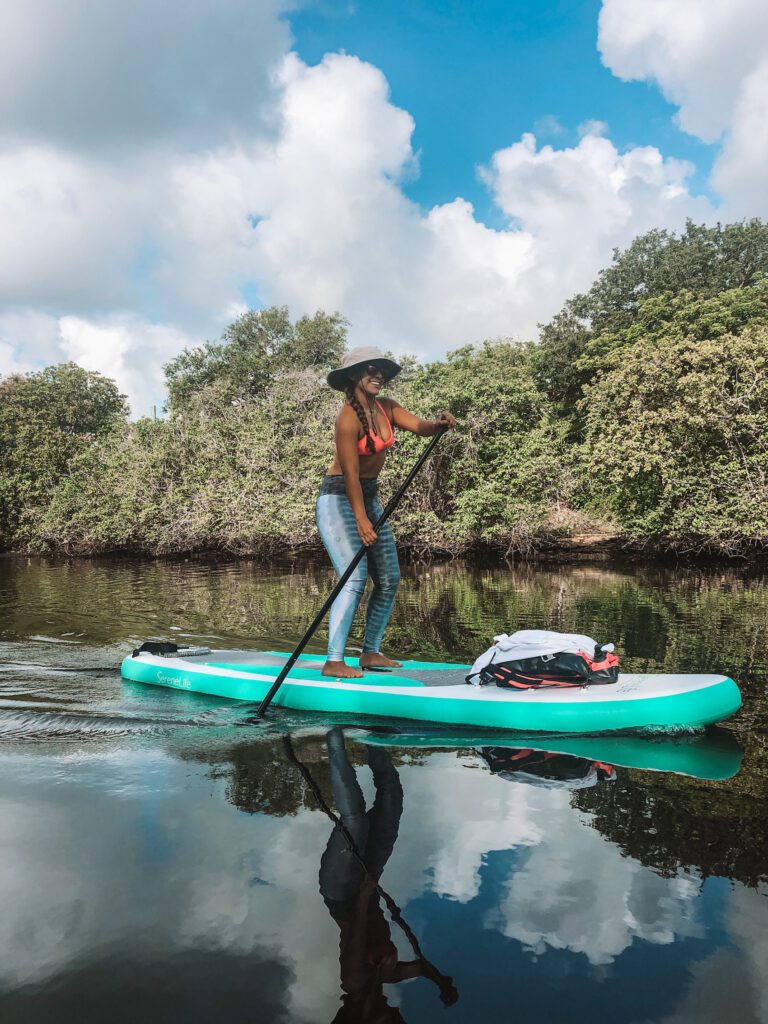
How do you conserve your air while scuba diving?
Did we miss any tips or tricks that you use? Conserving your air while scuba diving is no easy feat and we’re always looking for more ways to do it! Let us know in a comment below or contact us!
Enjoy this Post? Pin it!

Read More Scuba Diving Tips
We hope you enjoyed our post on how to conserve air while scuba diving. Hopefully you’ll find it useful on your next adventure! Here are a few more ocean-loving articles we think you should read next:
- 9 Fun Things to do on Your Safety Stop
- 5+ Resources for Marine Life ID in Florida
- 11 Reasons to Dive in Fort Lauderdale
- Why Do You See Tires When Diving in Fort Lauderdale?
Leave a comment below on any techniques you use to improve your air consumption while scuba diving!

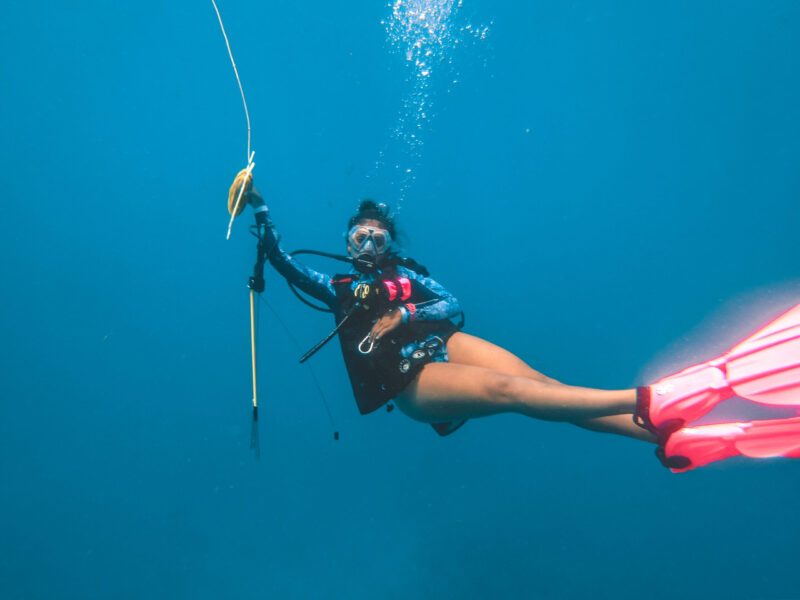
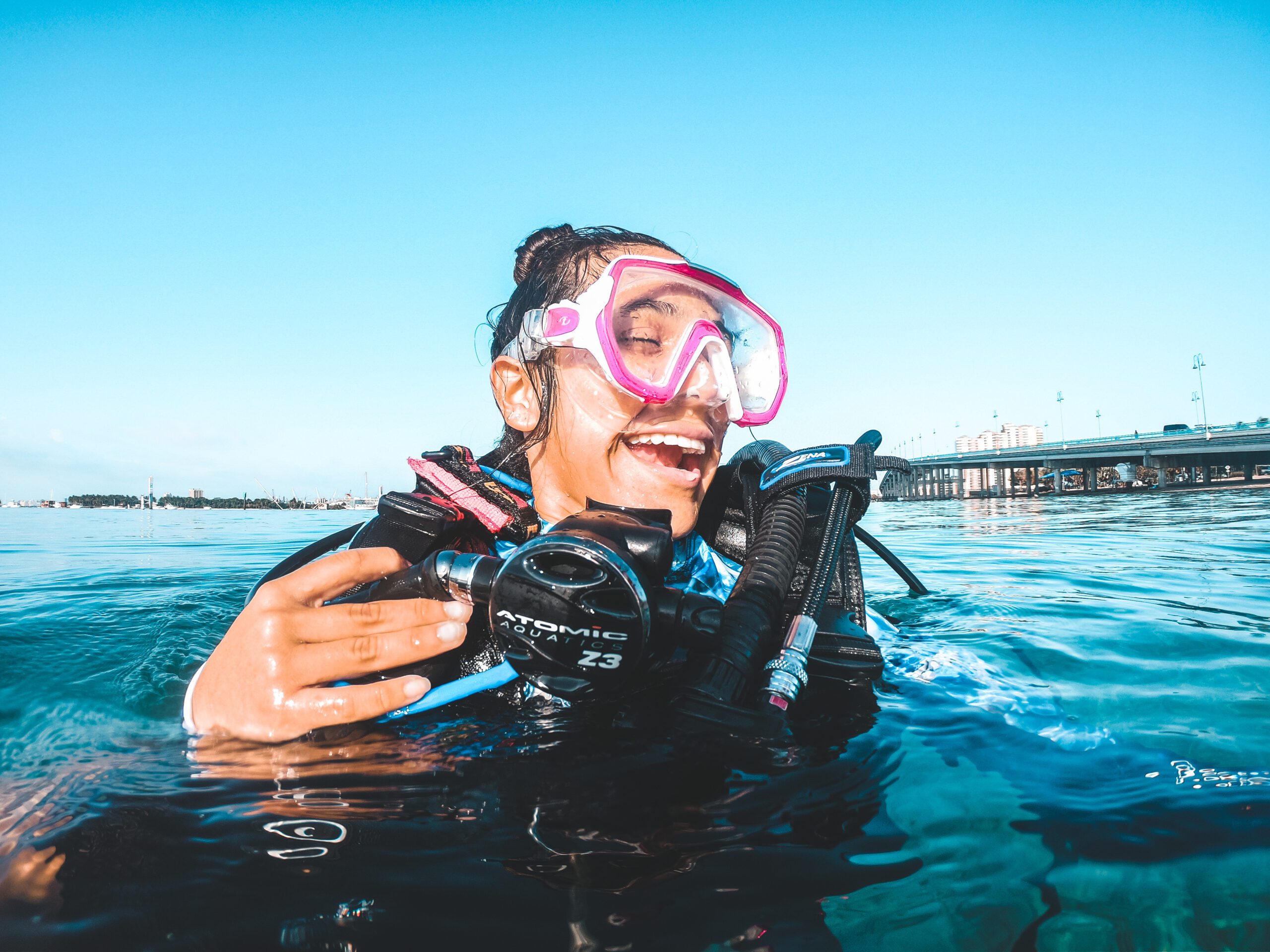
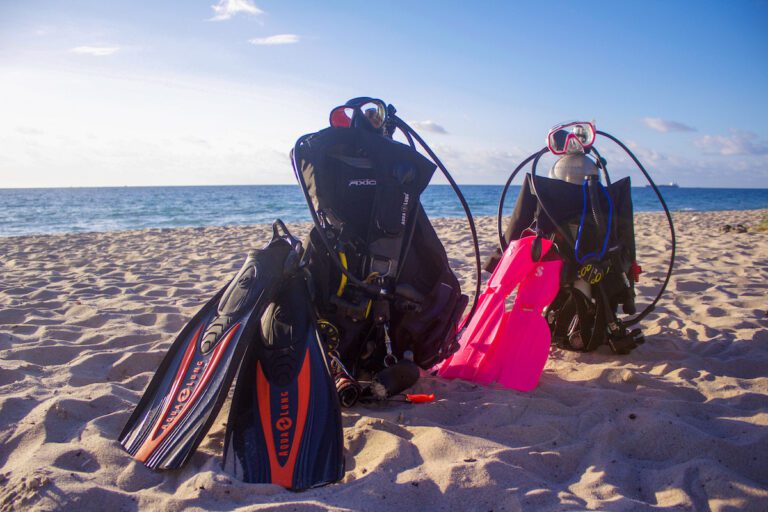
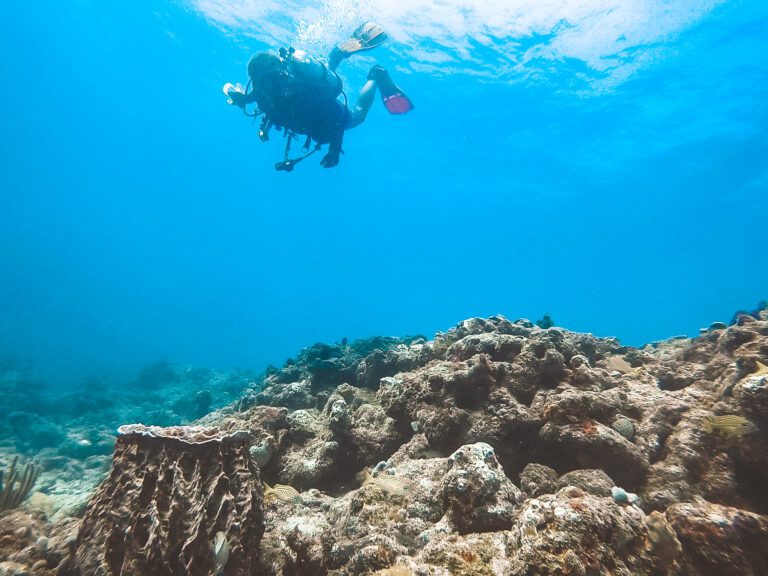
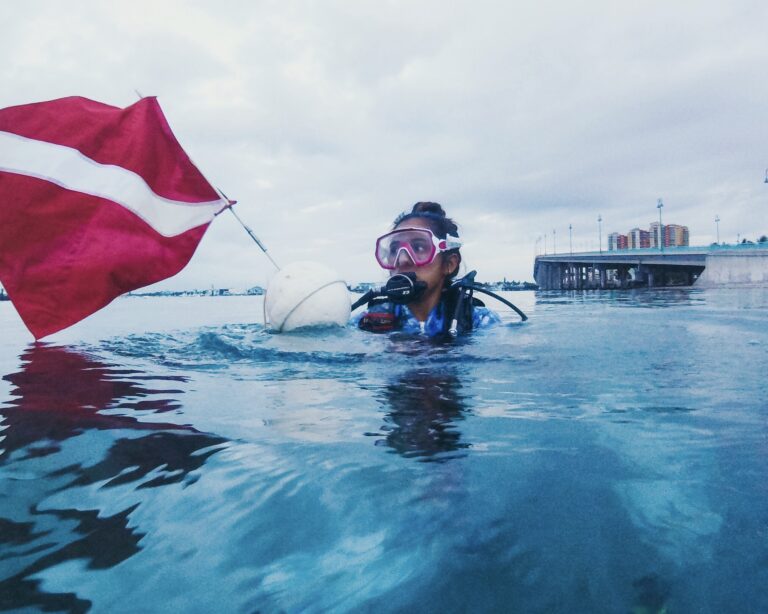
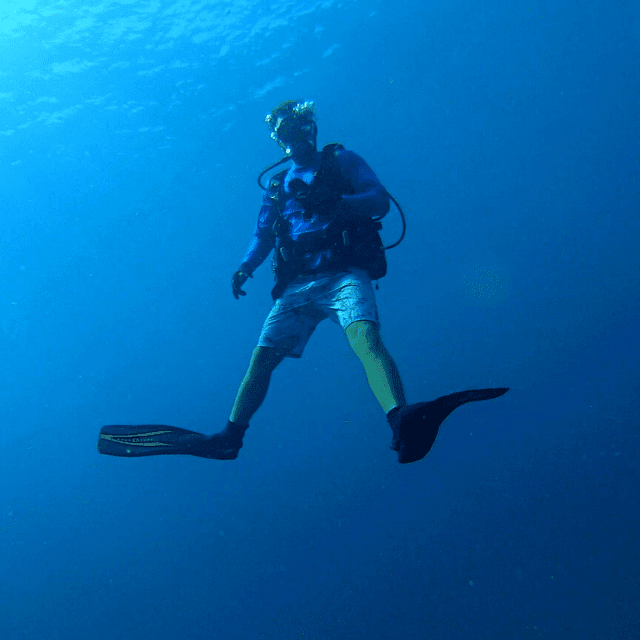
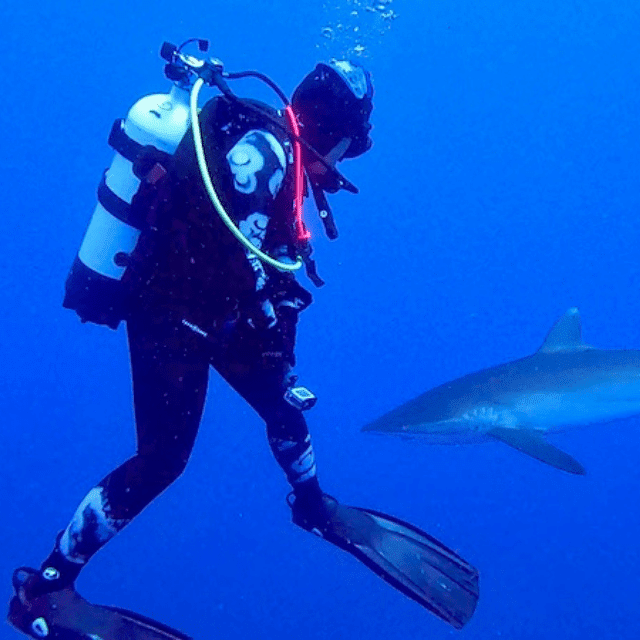
You made a good point that cardio workout can help me have stronger lungs for longer dives underwater. My best friend is inviting me to go on a scuba charter trip with him next year because it’s been quite a while since he had a vacation that involved swimming. Maybe we could go during the summer so that it would be warmer and that I wouldn’t worry about shivering due in the middle of the trip.
Hey Alice!
Those are all great ideas that might help with air consumption as well! Have fun on your next trip!